Thursday, October 31, 2019
Bajaj, TVS Motor Decide To Amicably Settle Decade-Old Patent Dispute
from NDTV Auto - Latest https://ift.tt/34kZz9a
Vivo S5 Launch on November 14, to Be Targeted at Style-Conscious Buyers
from NDTV Gadgets - Latest https://ift.tt/2Pxp03b
vivo S5 is arriving on November 14

Vivo teased the S5 earlier this week and today the company announced the smartphone will be unveiled on November 14 at an event in Hangzhou, China. The company made the announcement by posting a video on Weibo. It doesn't reveal anything about the S5, but the smartphone was spotted in a video last week with three cameras on its back arranged in a diamond-shaped formation. Details are scarce about the vivo S5 right now, but seeing how the S1 and S1 Pro were photo-centric devices, we expect the S5 to be aimed at the same audience and come with a 48/64MP primary camera and a 32MP...
from GSMArena.com - Latest articles https://ift.tt/2JFDSbV
Car Sales October 2019: Over 3500 Units Of The MG Hector Sold Last Month
from NDTV Auto - Latest https://ift.tt/335e6pj
GRRM Will Finish The Winds of Winter Before Writing House of the Dragon
from NDTV Gadgets - Latest https://ift.tt/2r2sK2o
Motorola Razr 2019 Foldable Phone Leaked in Renders Ahead of Launch
from NDTV Gadgets - Latest https://ift.tt/2JE5bmY
NPCIL Admits Malware Attack on Computer in Kudankulam Nuclear Power Plant
from NDTV Gadgets - Latest https://ift.tt/2NxNB50
Two-Wheeler Sales October 2019: Bajaj Sees 14 Per Cent Drop In Domestic Motorcycle Sales
from NDTV Auto - Latest https://ift.tt/2N2Td8z
ShopClues Acquired by Singapore-Based Qoo10 in an All-Stock Deal
from NDTV Gadgets - Latest https://ift.tt/2N4rCnv
No Information on India Purchasing Israeli Spyware, MHA in RTI Reply
from NDTV Gadgets - Latest https://ift.tt/36hEC0F
iPhone 11 Launch Timing Helped Apple's Uncertain China Rebound: Analysts
from NDTV Gadgets - Latest https://ift.tt/2NsKKKR
Watch the New Trailer for Netflix's The Witcher, Out in December
from NDTV Gadgets - Latest https://ift.tt/2JGlQGr
Facebook Sued for Age, Gender Bias in Financial Services Ads in the US
from NDTV Gadgets - Latest https://ift.tt/36mM2jc
Government Officials Said to Be Targeted in WhatsApp Hack Around the Globe
from NDTV Gadgets - Latest https://ift.tt/322K8AP
Sponsored Feature: Pedal to pedestal
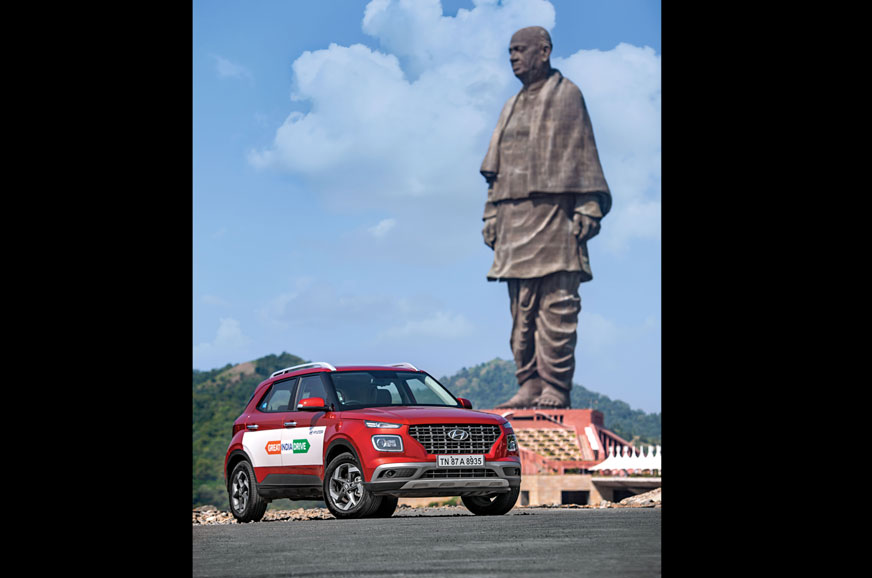
You might have read about it and seen it on television or on the Internet, but nothing prepares you for an actual visual encounter with the Statue of Unity, in Kevadia. The 182m-tall statue – the world’s tallest – of Sardar Vallabbhai Patel is amongst the most awe-inspiring and imposing man-made structures we have ever laid our eyes on.
Patel’s statue has been built on ‘Sadhu Bet’, a river island in the middle of the Narmada that flows onward to the Sardar Sarovar dam in Gujarat. The statue is flanked by the Vindhya and the Satpura ranges, which, along with the serene river, present a becalming picture when seen from the viewing galleries on the statue. We learn several things about it as we gaze at its sheer magnificence: about how its height matches the number of assembly constituencies in Gujarat; about its base that has been constructed with over 129 tonnes of scrap iron donated by thousands of farmers across India; and about the 1,700 tonnes of bronze that went into its making.
The man whose life and work it honours was indeed a giant among men. He is rightly known as the unifier of modern India, and his role in integrating the over 500 princely states into the dominion of India is among the most seminal accomplishments in this country’s history.
Celebrating India’s unity amid its splendid diversity was why we were at the Statue of Unity last month. As far as venues go, there couldn’t have been one more apt. As part of Hyundai Motor India’s Great India Drive (GID), the route we had chosen – from Kevadia to Nashik to Kanyakumari – was charted out this way to give us a chance to pay homage to the other titans from across the centuries whose appeal transcended social and geographical barriers and whose message was heard loud and clear in the sub-continent.
Our journey would be punctuated by tributes to other colossi. In the Mangi-Tungi hills near Nashik, we would be introduced to Lord Rishabhanatha, the first tirthankar (spiritual teacher) of Jains. Further south, in Karnataka, we would pay obeisance to Gomateshwara Bahubali. Finally, in Kanyakumari, we would meet Thiruvalluvar, the celebrated Tamil poet and philosopher, and Swami Vivekananda. The car that would take us on this over-1,000km journey was the Hyundai Venue. It is a warm day and the sun is shining bright, and we point the nose of the car towards Nashik.
Connected, capable, cool
There are many reasons why the Hyundai Venue is the car of choice for Hyundai’s GID, but prime among them is that it is the country’s first connected car, one that has found favour with thousands of young buyers. The Hyundai Venue, which comes with an embedded SIM card, was launched in May this year, and the response to it has been staggering. Between May and September, the Venue garnered over 72,000 bookings and 42,681 customers.
If you are in your late 20s or early 30s, you’d love the way the Venue has been put together, and about 10km from the former princely state of Rajpipla, one gets to know why so many young buyers are united in their appreciation of it.
A lot of it has to do with several typical Hyundai attributes. For example, at 10kph on an unusually traffic-free state highway, the Venue feels planted, and the feel of the cabin is top class. Its turbo-petrol engine is so refined and smooth. And when you’re in the mood for some fun, the 172Nm of torque satiates your need for speed. The light controls make it more manageable while negotiating traffic in small towns.
The Venue might be a sub-four-metre car, but Hyundai has worked well on extracting the maximum space for passengers. If you, like us, prefer the driver’s seat, you’d be glad to know that the high seating position affords excellent visibility. There are other reasons for the Venue’s shattering sales performance. Case in point?
As we home in on Rajpipla, we are hungry, and we simply call up the concierge service and it directs us to the best place for thalis in town. Et voila! That bit is just one of the many features the car’s much-admired Blue Link tech delivers. Blue Link allows users to manage and perform a host of functions, thanks to a dedicated server the SIM talks to. A suite of safety and security features, location-based services, driver alerts, voice commands and remote assistance can be accessed via a smartphone app.
And all of it actually works – our journey was made much smoother by the likes of Live Traffic Information and Live ‘Point of Interest’ search – just the things to have when are you out on the road. Not surprisingly, 50 percent of Venue buyers opt for the Blue Link technology in their car.
Universal messages
Rajpipla is a lovely town; its centerpiece is a magnificent palace that is over a century old. With fantastic Gujju food in our bellies, we thumbed the starter button again, and guided the Venue along tiny towns such as Kochbar, Netrang, Ukai and Songadh. Winter is yet to make its appearance, but along the way we saw nature preparing for it. In some places, the lush green glow of the monsoons gave way to more austere colours, and one could sense that the days would soon get shorter. The Venue made short work of the distance – about 300km – to our destination.
You might have never heard of Mangi-Tungi, but take our word for it – as far as sights go, it is a memorable one. Mangi-Tungi is a twin-pinnacled peak, about 120km from Nashik. At over 4,000ft, the peaks are respectably tall – but that is not the reason that pulled us to the hills. Both Mangi and Tungi are of great significance to Jains, and the hills are dotted with several caves that contain several images of Jain tirthankaras or spiritual teachers.
However, while the ancients engraved images of their spiritual guides on the walls of caves and monasteries, men today erect gigantic statues as tribute. The one at Mangi Tungi is, in fact, the tallest Jain statue in the world, and depicts the first of the 24 Jain tirthankaras – Rishabhanatha. It has been fittingly named the ‘Statue of Ahimsa’, since Jains consider non-violence to be the most essential duty for everyone (ahinsā paramo dharma). That message, of course, has universal appeal, and it was Rishabhanatha who first articulated the founding tenets of Jainism.
The 108ft idol has been carved out of a single rock, and even on a weekday morning, there are streams of devotees paying obeisance to the tirthankar. We crane our heads to get a better look. The statue, set against the hills, rises high, bearing a peaceful visage. A lot of that peace also appears to radiate around the place. We spend about an hour at the complex of temples, and then get back into the car.
Our next destination will take us down south, and there, we will encounter Bahubali. That, however, is another story, for another issue.
from Autocar India - Cars https://ift.tt/3261wVt
History of the Mercedes-Benz S-class
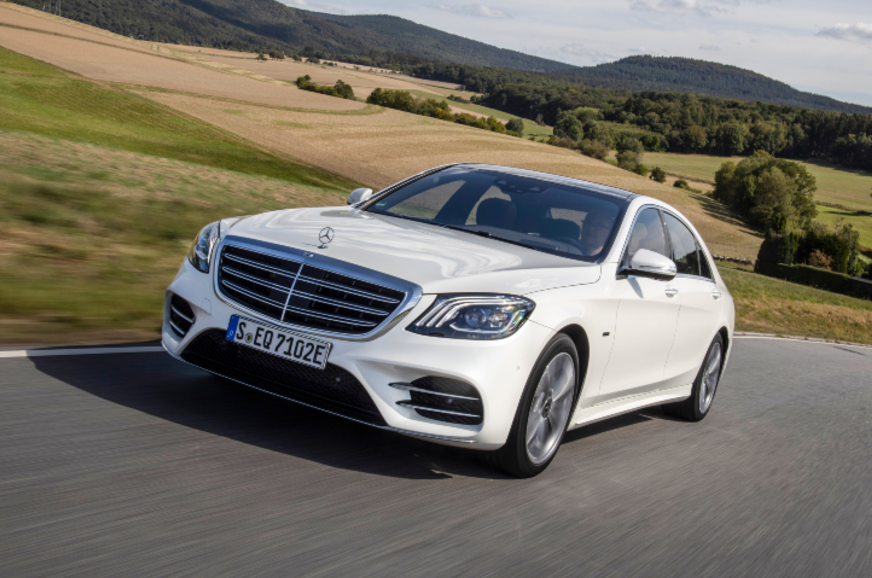
Mercedes-Benz has one aim when it comes to its range-topping S-class – to make the best car in the world, and that’s no mean feat. But as the automotive industry has witnessed time and again, with each new Mercedes S-class variant comes innovative technology never before seen on a car. The S-class has always been a game-changer. So where did it all begin?
The Mercedes S-class DNA can be traced back to 1951, when at that year’s Frankfurt motor show, the German carmaker introduced the svelte W187 220 and W186 300 models. Available in sedan, coupé and cabriolet styles, the 220 was powered by a 2.2-litre, six-cylinder overhead cam unit producing 81hp.
In its grander 300 guise, an 114hp, 3.0-litre, inline-six propelled the car onto a top speed of 161kph – cementing the 300 as the fastest German production car at that time. Technical highlights included a safety lock to prevent doors from bursting open and electronically operated torsion bar suspension to compensate the height of the rear wheels under heavy load.
In 1954, the W180 220 series made its debut. Nicknamed 'Ponton' for its markedly round, slab-sided design, the 220 showcased an innovative single-joint swing axle for improved safety and comfort, an automated clutch, manually controlled fuel injection and even separate heaters for driver and passenger.
The Fintail featured crumple zones and locks which ensured the doors stayed closed in a crash.
Five years later, the ‘Fintail’ Mercedes-Benz W111/112 arrived in five versions, from 220b to the 300SE long-wheelbase form. The W111/112 took safety to a whole new level; boasting the world premiere of front and rear crumple zones, the first Mercedes-Benz car to feature disk brakes all round, while an injury-reducing interior brought to the forefront three-point seat belts, a padded steering wheel and wedge-pin door locks.
In 1963 Mercedes-Benz unveiled the colossal W100 600 limousine, available in short-wheelbase and long-wheelbase ‘Pullman’ versions. Embellishments such as air suspension, hydraulic appointments all-round and a 250hp 6.3-litre V8 shifting the hefty 2600kg body gave the 600 an air of supremacy, proving immensely popular with political figures and celebrities during its time. Production ceased in 1981 with 2677 examples built.
Two years after the debut of the 600, Mercedes-Benz launched the W108/109 saloons to replace the previous generation ‘fintail’ version. The W108 line, which included the 250S, 250SE, 280S, 280SE and 280SEL were larger than its fintail predecessor it replaced. The W109 was identical to the W108, but featured an extended wheelbase of 115mm and self-levelling air suspension. Its success as a “premium flagship” car convinced Daimler to add a long-wheelbase car to the model range and from that point on, all future S-class models would feature a long-wheelbase variant.
In 1966, company engineer Erich Waxenberger had a brainwave: extract the 250hp, 6.3-litre V8 unit from the 600 limousine and shoehorn the lump into the W109 body, thus creating the Mercedes-Benz 300SEL 6.3. The result was a nigh on two-tonne sedan with enough performance that left Porsche 911S owners on an autobahn looking flat-footed. The 0-100kph sprint dispatched in an eye-popping 5.7 sec and onto a top speed of 230kph. Even Mercedes-Benz’s tuning subsidiary (AMG) got in on the act, producing a fettled 6.8-litre V8 425hp version nicknamed the 'Rote Sau' or Red Pig, which went on to finish second at the Spa 24 Hours in 1971.
After years of subtly dropping the ‘S’ into its luxury flagship cars, in 1972 Mercedes-Benz eventually gave in and named their W116 variant the S-class. Stamping its authority as the halo model in the German carmaker’s line-up, the W116 S-class was the first production car to get ABS – it showcased the hugely advanced system in 1978. Other innovations included the first production sedan with a turbodiesel engine (the 300SD launched that same year), cruise control and a collision-proof fuel tank.
In 1979, the W126 S-class was launched. Featuring improved aerodynamics and sleeker lines, the W126 continued the S-class technical trend, including revolutions such as the world debut of the driver’s side airbag in 1981 and front passenger airbag in 1985, passenger seatbelt tensioners, a bodyshell with a ‘forked’ longitudinal member to meet the offset of crash requirements and lighter all-alloy V8 engines. The W126 S-class’s production run of 12 years was longer than any S-class before or since, with over 8,90,000 models sold worldwide.
Mercedes-Benz unleashed the bulkier W140 S-class in 1991 in the form of two wheelbase versions and a W140 coupé. In addition to boasting such electronic wizardry as Electronic Stability Programme (ESP) – another world-first – adaptive damping, brake-assist and self-closing boot and doors, the W140 also featured double glazing on the side windows and was the first Mercedes-Benz passenger car to come with a production 12-cylinder engine. Back then, it was the brand’s most powerful passenger car – the 6.0-litre unit pumped out 413hp.
Fast-forward seven years and the W220 replaced the now-ageing W140 with a completely new design, resulting in a body that was slightly shorter and lighter than its predecessor. The W220 continued the S-class’s pursuit towards ever-improving safety with eight airbags, ‘Pre-safe’ occupant protection system and an automatic childseat recognition system. Automatic cylinder shut-off, ventilated seats and a ‘Keyless-Go’ access system also made their debut. Mercedes-Benz also launched the first official AMG-badged S-class in the form of the S55 AMG armed with a 500hp supercharged 5.4-litre V8.
In 2005, the W221 S-class was unveiled at that year’s Frankfurt motor show, with evidence of a bulking diet – overall proportions being slightly larger than the preceding W220. Technological bragging rights included lots of ‘assisting’, with infrared night view assist, blind-spot assist, park assist, lane-keeping assist and a proximity control including an automatic braking system.
With Mercedes-Benz’s new W222 model pioneering rear seatbelt airbags and tweaks to its Airmatic Active Body Control and Distronic Plus systems, can the S-class continue to be the technological tour de force not only in the luxury sedan car segment, but also in the automotive world?
from Autocar India - Cars https://ift.tt/36sjFjN
Huawei MatePad Pro leaks with slim bezels, punch-hole camera, stylus

A couple or so weeks ago an unannounced Huawei tablet leaked in some official-looking (yet low quality) renders, showing a punch-hole display housing a selfie camera in one corner, incredibly thin bezels for a tablet, a keyboard accessory, and a stylus that magnetically attaches to the tablet's top side. Today Evan Blass, aka @evleaks, has outed a new press render of the same device, and also provided us with its commercial name. It's going to be called Huawei MatePad Pro, and not MediaPad M7, as previously rumored. Given the design, stylus and keyboard support, and the name, Huawei...
from GSMArena.com - Latest articles https://ift.tt/36nF2CF
SCOOP! Ford mulling over Mahindra Marazzo-based MPV for India
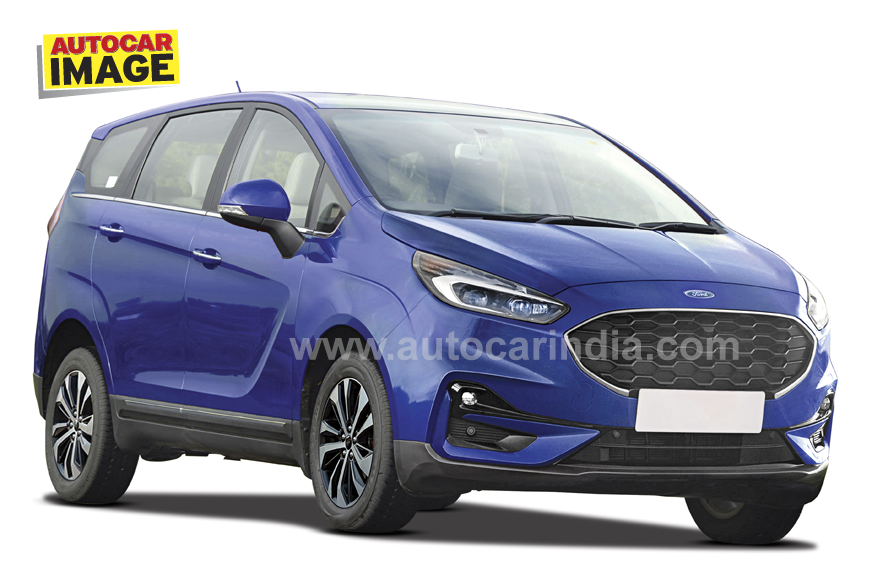
At the announcement of Ford and Mahindra’s joint venture (JV) for India last month, executives of both companies made public plans for three new SUVs for Ford, and their cooperation in electric vehicle development. Autocar India can now confirm that there’s a lot more to come from the JV too – including a new Ford MPV, which will based on the Mahindra Marazzo.
Ford had previously considered entering the Indian MPV market with a low-cost version of the B-Max (code: B516) to take on the Maruti Suzuki Ertiga. However, the investment needed was too high for the volumes projected, especially in a market where MPVs were being overshadowed by SUVs. As a result, the project was ultimately shelved. Now, with this new JV in place, Ford has access to the Marazzo’s platform, which the company plans to use to develop its own ‘top-hat’.
The new model will not be a badge-engineering job and is expected to get a completely new body designed to retain the look sported by Ford’s global MPVs, like the B-Max. There will be plenty of unique elements on the inside as well like a new dashboard altogether, along with the Sync series infotainment system from the Ford parts bin. Like the Marazzo, the new Ford MPV could be sold in seven- or eight-seat configurations. Under the skin, however, the Ford MPV will have much in common with the Marazzo. The Marazzo’s unique combo of ladder-frame chassis and front-wheel drive will be retained, though Ford is sure to rework the suspension tuning. What will be common to the two MPVs is their powertrain. A BS6 version of Mahindra’s 1.5-litre diesel engine will power the Ford MPV, and manual and AMT auto gearboxes will be on offer, as well. A 1.5-litre turbo-petrol (which Mahindra is in the process of developing) is also a likely engine option.
This new JV has opened a wide range of new product options that were not feasible for Ford to develop on its own earlier; but by sharing development and production costs with Mahindra, products like a mid-size MPV – which Ford had seriously mulled over in the past – are back on the drawing board.
For Ford, the MPV segment is of particularly interest as MPVs have been an integral part of Ford’s global model range. “MPVs resonate with the perception that Ford is a family brand with family values,” said a source in Ford.
More importantly, there has been a resurgence of the MPV segment led by the second-generation Maruti Suzuki Ertiga and, more recently, the compact Renault Triber. The Marazzo too, has contributed to the MPV segment’s growth whilst the Innova Crysta has remained unchallenged at the top-end of the segment. The Kia Carnival is all set to crash the Innova’s party and push segment sales further. “It’s the right time to enter the MPV market, especially since the entry barriers are now much lower with the Mahindra tie-up,” said a company insider from Ford.
The new Ford MPV is likely go on sale in India sometime in 2021.
from Autocar India - Cars https://ift.tt/2WuY7ON
Electrifying formula: Driving a Formula E car
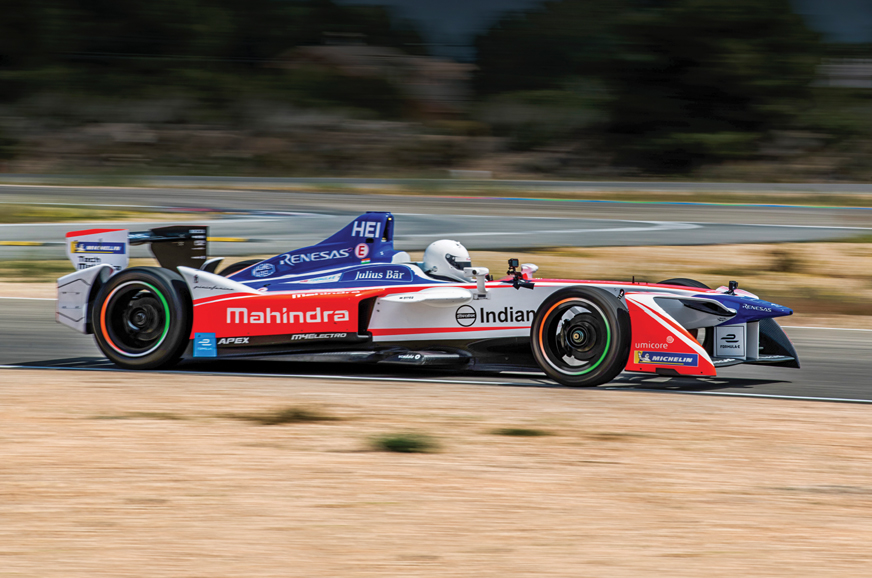
The buzz word in the automotive world these days is ‘electric’. Even the pinnacle of racing has an electric version — Formula E. Purists have scoffed, but the Series is gaining popularity really quick and I got the chance to go out and watch a race. Now that’s a story in itself, but the bigger story is that I actually got to drive the Formula E cars, both Gen1 and 2. Certainly an exhilarating experience, but let’s start from the beginning.
To be able to get into the Formula E car and race, it’s vital to have some experience. Our first stop is at QEV Tech in Barcelona, where the Mahindra Racing drivers come to get in hours of practice in the simulators. I feel pretty special already, with a team of engineers buzzing around me to do a seat fitting, settle me into the sim and get set to go. I think it is all okay, but then suddenly I hear, “No, no, no, she doesn’t have enough pressure on the brakes”.
I look up to see Jérôme d’Ambrosio, the Mahindra Racing Formula E driver, peering over my shoulder. “Okay, press the brakes hard, stand on them,” he says. I am a bit in awe and do my best. “You see, it’s not enough. Move the seat forward,” he tells the engineers. Wow, and I thought I was just fine. While the engineers work to get some more padding in behind me, Jérôme tells me I need to get upto at least 40 percent to begin with. So this time around, I jam my foot down and it works. Finally, we are good to go and I’m nervous as hell because I have Jérôme instructing me. I have never been good at video games, hate the lack of real feel, and instantly I’m pretty lost in the simulator too. The brakes are hard to manage and I go off the track, into the guard rails and spin as well. I can see Jérôme and the team getting a little worried at my abilities. I feel a bit foolish too.
Next morning, we head to Calafat. My head is just about getting back in place, but there are giant butterflies in my stomach. I have driven Formula cars, raced them too, but the session in the sim has made me nervous. Jérôme takes us around the track in the car so that I can familiarise myself with it, and then it’s time to gear up and get in. I’m told I will drive the Gen2 car first. Getting in over that Halo and into the seat is an art in itself and they make me do it a couple of times till I get my seating position right. Finally it’s time to go and my heart is now pounding. As they push the car out of the garage and into position, I can hear my breathing in the helmet — it’s shallow and quick. “Let’s go!” the engineers shout out.
A quick lunch break and it’s time to drive the Gen1. This one’s easy to hop into minus the Halo. Now, with a sense of familiarity, I head back out on the track. Almost immediately, I feel the difference. Power doesn’t come in so easily once you brake hard, and you have to learn to work the throttle or the car judders as it gets back on power. The steering is heavier and requires way more effort, the brakes – well, let’s just put it this way: I have to stand on them to get them to bite. Around corners, you can’t brake progressively. You have to brake hard, align the car, turn in and power only once the wheels are straight, or it snaps much more easily.
I’m stuck in that gravel trap, waiting for the crew to come and get me, but there is a massive grin under my helmet. The feeling’s sinking in — I’ve just driven the Gen1 Formula E car and I’m also the first female journalist to have driven the Gen2 car. The experience has been completely electrifying, to say the least. The drive in both the cars has made me realise the pace of evolution in the Series, in how short a while the car has been developed and also what a headstart Mahindra has in the EV race. The kind of technology and development that is happening here is already being shared with the Pininfarina Battista and it means EVs from Mahindra will be the ones to watch out for.
Back in the pits, Jérôme looks up, smiles at me and my wide grin, and says, “Wasn’t too bad, was it? Sorry, forgot to tell you the brakes really need to warm up in Gen1.” I’m pumped by the whole experience. Not bad? This was awesome.Bucket list ticked!
Paris E-Prix
The Paris round of the Formula E was the first wet race of the season. Under the grey clouds in Paris, the Mahindra team whipped up a stellar performance, but the tension in the pit was palpable right until Pascal Wehrlein’s name came up at pole position on the TV screen. The whoops of elation all around made me get up and scream with joy as well.
Watching the race with the team, you get to witness the tremendous work that goes on behind the scenes, right from prepping the car and getting it just right, down to the minute-by-minute strategy all through qualifying. For me, it was also a learning on how a high can so quickly dissolve into a low – the parameters of tyre pressure were not met by the team at the end of the qualifying and one small error took both drivers down to the back of the grid.
Now had that happened to me, I’d have probably lost my cool. But Mahindra’s sporting spirit clearly shone through as both drivers kept their heads firmly on their shoulders, took the setback in their stride and worked with the team to strategise on how to make the best out of the worst possible situation.
The race itself was very wet and Jérôme d’Ambrosio pulled off a great performance to come up all the way to 7th position. The excitement of the team rubs off, and even I was standing there yelling “Yes!” every time he passed a car. Unfortunately, the tyres played a sorry part here too, with the safety car coming on for a long stint – the cold tyres and wet surface sent him into the barriers in the closing stages of the race.
It was an amazing experience, with adrenaline pumping one minute and disappointment washing over the next. But mostly, it was a lesson about what “teamwork” really means.
from Autocar India - Cars https://ift.tt/330V6bk
WhatsApp Pay India Launch Soon: Mark Zuckerberg
from NDTV Gadgets - Latest https://ift.tt/2Wrn0e2
Wednesday, October 30, 2019
Facebook a 'Megaphone for Hate' Against Indian Minorities
from NDTV Gadgets - Latest https://ift.tt/3233fea
1.3 Million Indian Credit, Debit Card Details Up for Sale on Dark Web
from NDTV Gadgets - Latest https://ift.tt/2WDk5PP
Airtel No Longer Offers Data Rollover for Broadband, Prepaid Customers
from NDTV Gadgets - Latest https://ift.tt/2PxNlpq
Here's Why Game of Thrones Creators Quit Star Wars
from NDTV Gadgets - Latest https://ift.tt/2WvjAqY
Xiaomi Mi Note 10 to arrive on the global scene on November 14

Xiaomi is expected to launch the Mi CC9 Pro next week, and the phone with 108 MP five-cam setup is going on the international market under a different name - Mi Note 10. While we thought they might be launched at the same time, today the Facebook page of Xiaomi Poland revealed it will have a premiere for new products on November 14, using the five-cam logo. The smartphone is expected to have all cameras on the back lined up vertically, coupled with two dual-LED flashes. Later Xiaomi posted two images on its social media channels, including the Polish version, where it is...
from GSMArena.com - Latest articles https://ift.tt/2PIVR5h
Redmi 7 Gets MIUI 11 Stable Update in India With October Security Patch
from NDTV Gadgets - Latest https://ift.tt/2pjl6jM
Apple Posts Record Quarterly Revenue in India as Mac Sales Rise
from NDTV Gadgets - Latest https://ift.tt/2Jwbp8r
Mercedes EQS Spied Wearing Heavy Camouflage And Concealment Panels
from NDTV Auto - Latest https://ift.tt/36mrgAg
Twitter to Ban Political Ads in Apparent Swipe at Facebook
from NDTV Gadgets - Latest https://ift.tt/2JDhsYL
Facebook Now Has 1.62 Billion Daily Users, Beating Growth Estimates
from NDTV Gadgets - Latest https://ift.tt/3214SJ9
Our Motorola One Zoom video review is up

This has been the year when a lot of phone makers' lineups have gotten more confusing than ever, and Motorola is no exception. The One branding used to imply that phones with that name were part of the Android One program, but now... not so much. We're also getting more and more Motorola One branded handsets, and the latest of the bunch is the One Zoom. It has "Zoom" in the name, but its telephoto lens provides only 3x magnification, so it's bested on that front by competitors from Huawei and Oppo. Still, what's it like to use? We prepared a short and sweet video review for you that aims...
from GSMArena.com - Latest articles https://ift.tt/36l5sVx
Peugeot, Fiat Chrysler Move Step Closer To Possible Merger
from NDTV Auto - Latest https://ift.tt/2qRXS4q
Apple Tunes Out Trade War as New AirPods, Services Lift Holiday Outlook
from NDTV Gadgets - Latest https://ift.tt/34if69O
From Star Wars to Jack Ryan, TV Shows to Watch in November
from NDTV Gadgets - Latest https://ift.tt/34fHE3r
Apple Beats Profit Forecasts Amid Growth in Services, Wearables
from NDTV Gadgets - Latest https://ift.tt/2NqwHpc
Apple's 5G iPhones to have 5nm chipset, Qualcomm's X55 modem

Although a lot of Android device makers have already launched 5G capable smartphones, Apple is still holding out. This year's iPhones top out at 4G, but that situation has long been rumored to change in 2020. Now a new report out of Japan claims that next year's iPhones will employ Qualcomm's X55 5G modem, according to four people familiar with the plan. However, there may be supply constraints on the X55 as everyone will want to use it in 2020. Apple's A14 SoC that will debut in next year's 5G iPhones is said to use the world's most advanced 5nm fabrication process, and TSMC will be...
from GSMArena.com - Latest articles https://ift.tt/2BU4nGp
AKG Y500 Wireless review

The Y500 Wireless is a new pair of Bluetooth headphones from the Samsung owned AKG Acoustics. It's a fairly affordable pair for casual, outdoor use with a compact, foldable design and some unique features for the price. The design of these headphones is quite appealing. It's quite compact, thanks to a relatively thin frame and small ear cups, and they also fold inwards to be stowed away easily. They come in four different colors, black, green, blue and pink. Build quality is average. They feel lightweight and plasticky with slightly loose joints. The headband length is adjustable...
from GSMArena.com - Latest articles https://ift.tt/2MZWCVI
2020 Indian Challenger unveiled
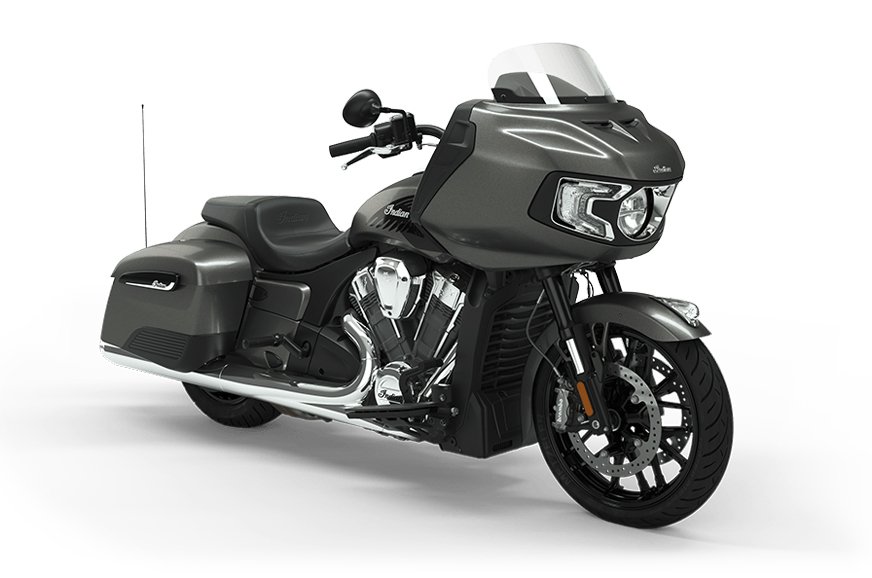
American manufacturer Indian has taken the covers off the all-new Challenger touring motorcycle. The cruiser is available in three variants – Standard, Dark Horse and Limited and features an all-new V-twin engine.
Powering the Challenger series is the brand’s all-new ‘PowerPlus’ V-twin. The liquid-cooled unit displaces 1,769cc and puts out 122hp and 173.5Nm of torque via a 6-speed gearbox with a ‘true overdrive’ function.
As for the features, the Challenger gets LED headlamps with DRLs, a 7.0-inch touchscreen display, a 100W audio system with Bluetooth, cruise control, keyless ignition, riding modes, a powered windshield and locking-hard saddlebags.
While there has been no confirmation yet, we expect Indian Motorcycles to bring the Challenger series to India, seeing as how the rest of the manufacturer’s range is already on sale here. As for the price, the base Challenger Standard costs USD 22,000 (Rs 15.60 lakh) in the US. For the India price, we expect the Challenger series to start at around Rs 21 lakh, since the FTR 1200 S starts at USD 15,499 (Rs 10.99 lakh) in the US and is sold at Rs 15.99 lakh in India.
(All prices, ex-showroom India.)
from Autocar India - Bikes https://ift.tt/332o6zy
2019 Renault Kwid: Which variant to buy?
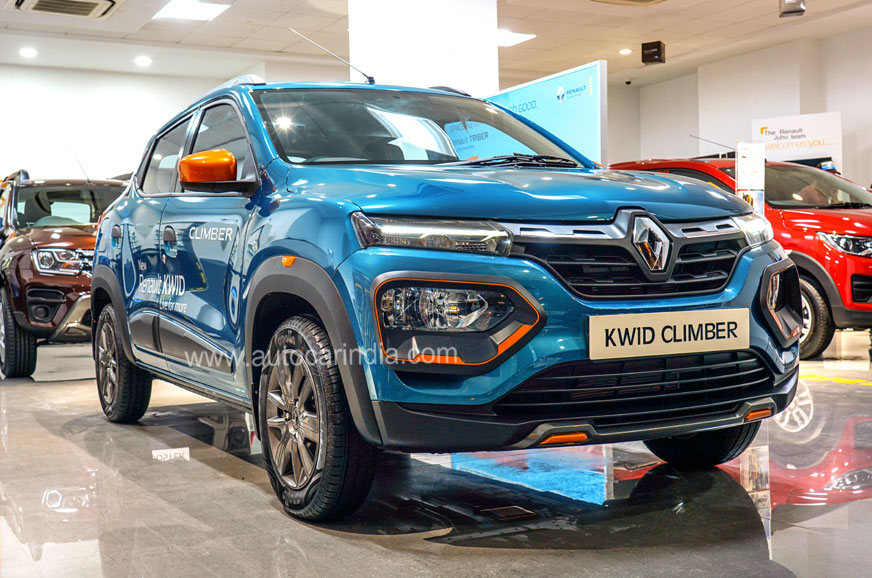
French carmaker Renault recently gave its highest-selling model a rather comprehensive makeover, which brought with it a new design, more features across the range and a slight (Rs 7,000-8,000) increase in prices.
With the update, the SUV-inspired budget hatchback’s line-up has been rejigged as well. With all engines, gearboxes and trims accounted for, there 12 versions of the Kwid on offer. We’ll break the entire range down and find the one that makes the most sensible buy.
What are the engines and gearboxes on offer?
With BS6 emission norms set to take effect on April 1, 2020, it came as a surprise that Renault opted to launch the updated Kwid with the existing BS4-spec engines. On offer are 54hp, 0.8-litre and 68hp, 1.0-litre petrol engines. The 800cc engine offers very average performance and is just about adequate for city use. The sprightlier 68hp, 1.0-litre Kwid is easily the better car to drive and is worth paying the extra money for.
5-speed manual gearboxes are standard fitment, but the Kwid 1.0 also gets the option of a 5-speed AMT automatic 'box. You won’t have reason to complain about the manual; but city dwellers will find the Rs 30,000 premium on the AMT variant money well spent.
What are the variants on offer?
Renault sells the Kwid 0.8 in Std, RxE, RxL and RxT versions, while the Kwid 1.0 comes in RxT and Climber versions. Notably, the Kwid 1.0 can also be had with an Option pack that adds a passenger airbag and rear power windows for about Rs 8,000 extra. The Kwid facelift also gets a driver airbag, ABS with EBD, driver and passenger seat belt reminders, a speed warning system, an engine immobiliser and rear parking sensors as standard.
| Renault Kwid prices | |
| Variants | Prices (ex-showroom, Delhi) |
| Standard 0.8 | Rs 2.83 lakh |
| RxE 0.8 | Rs 3.53 lakh |
| RxL 0.8 | Rs 3.83 lakh |
| RxT 0.8 | Rs 4.13 lakh |
| RxT 1.0 | Rs 4.33 lakh |
| RxT(O) 1.0 | Rs 4.41 lakh |
| Climber | Rs 4.54 lakh |
| Climber (O) | Rs 4.62 lakh |
| RxT 1.0 AMT | Rs 4.63 lakh |
| RxT(O) 1.0 AMT | Rs 4.71 lakh |
| Climber AMT | Rs 4.84 lakh |
| Climber (O) AMT | Rs 4.92 lakh |
The base Std trim might be where the Kwid range starts but it does get body-coloured bumpers, LED DRLs and 14-inch steel wheels. On the inside, there are few frills beyond the digital instrument cluster, including a tachometer.
The RxE costs Rs 70,000 more and gets decals on the side, a folding rear seat, a manual AC and two speakers at the front. Things get more appealing when you look at the RxL trim, which costs Rs 30,000 more than the RxE. The exterior looks more enticing, courtesy its contrast mirrors and full-wheel covers, while on the inside there’s more by way of comfort and convenience features too. The Kwid RxL gets power steering, front power windows, and a single-DIN audio system with USB, AUX-in and Bluetooth connectivity.
The RxT variant goes a step further, with features such as a rear parking camera, intermittent front wipers, a rear parcel tray, an 8.0-inch touchscreen infotainment system with Apple CarPlay, Android Auto and voice recognition, a 12V accessory socket for the rear passengers and a USB fast charger. The 0.8-litre Kwid RxT costs about Rs 30,000 more than the RxL, making it a much more attractive buy.
The Climber variant adds a rear-centre armrest as well as a lot more spice to the package, courtesy a large number of exterior and interior embellishments. Climber variants are also priced at about Rs 21,000 more than the lower-spec 1.0 RxTs.
Which is the version to buy?
Neither of the two engines are perfect, but you’d be best served by the 1.0-litre unit. Of the two transmission options on offer on the 1.0, we’re leaning towards the AMT auto solely for the convenience it brings to the Kwid – for not too much more money.
The range-topping Climber variant is a great choice if you want your Kwid to stand out. But for most buyers, the RxT will do just fine – and save you a good Rs 21,000 too. We would recommend the add-on Option pack; the added safety of a passenger airbag is well worth the extra money. All said, our pick of the Renault Kwid facelift range is the 1.0-litre RxT(O) in AMT form.
from Autocar India - Cars https://ift.tt/2Wx0lNI
Realme X2 Pro European pre-orders scheduled to start on November 4

After the Realme X2 went on sale in several European markets yesterday, the company announced its flagship X2 Pro is going on pre-order starting November 4. On launch, Realme will be able to ship the phone to Belgium, France, Italy, Luxembourg, the Netherlands, Poland, Portugal, Spain and the UK. The X2 Pro is every bit of a flagship phone with a 90Hz SuperAMOLED display, Snapdragon 855+ chipset and 64MP main camera. You also get the blazing 50W SuperVOOC charging to top up the 4,000 mAh battery. The baseline 6/64GB version comes with a €399 price-tag. There's also an 8/128GB...
from GSMArena.com - Latest articles https://ift.tt/36gqwN7
Yamaha Lifetime Quality Care service package announced
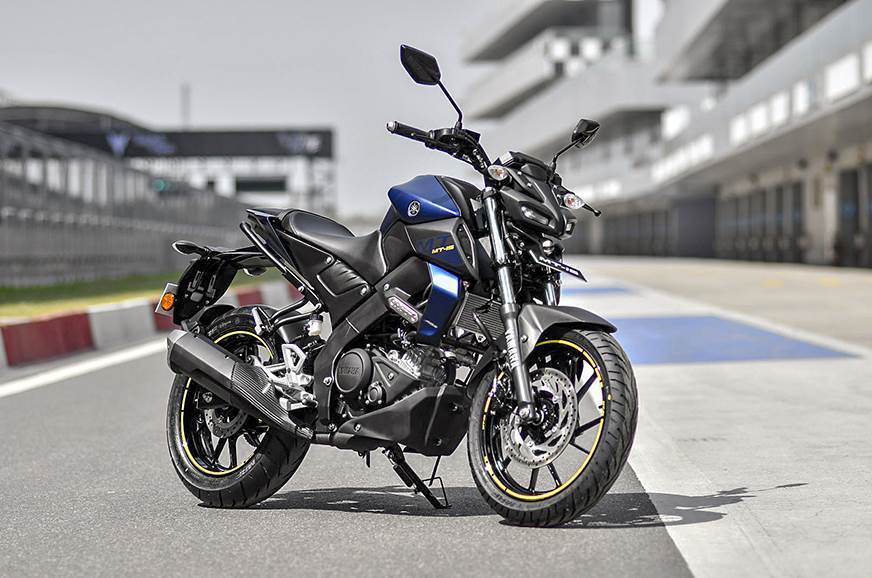
Yamaha recently announced its ‘Yamaha Lifetime Quality Care’ program. This program, as its name suggests, is a service package for Yamaha two-wheeler owners in India. The company has said that it includes benefits like a time-based 90min service time, roadside assistance and an extended warranty, as well as pick-up and drop-off.
The program can be availed by both existing and new Yamaha customers for the whole range of current two-wheelers offered by the company in India. The price for the program, however, hasn’t been revealed yet.
Mr Ravinder Singh, Senior Vice President, Strategy & Planning, Yamaha Motor India Sales Pvt Ltd. said, "The impact of after sales in auto industry is central to the customer perception of the brand – more the hassle-free experience, the more the brand will linger on to the minds of customers."
In other news, Yamaha is expected to launch its BS6-compliant FZ, FZ-S and YZF-R15 V3.0 in December 2019.
from Autocar India - Bikes https://ift.tt/34jnNAm
Review: 2019 Hyundai Santro long term review, final report
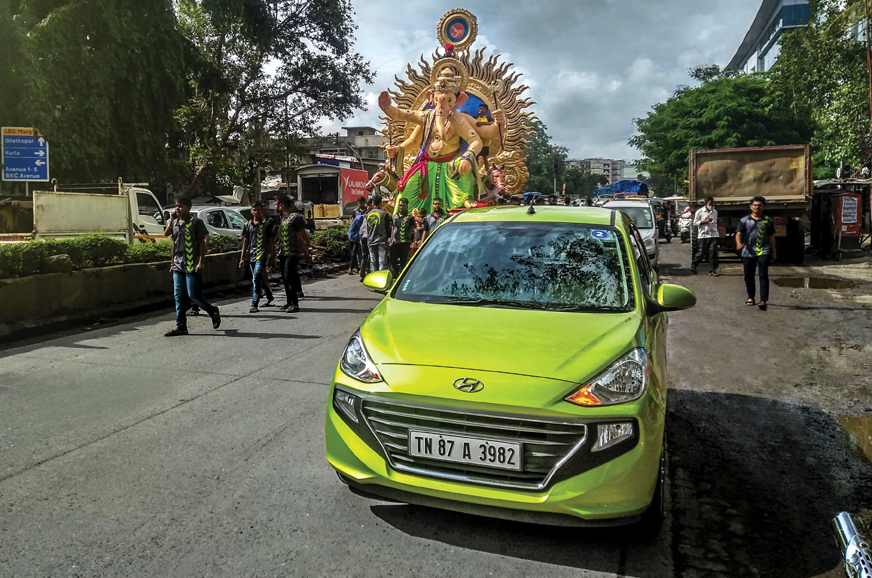
After six months, it’s time to say goodbye to our smallest long- termer, the Hyundai Santro. I was handed the keys to Hyundai’s comeback kid in February 2019, and it has remained exclusively with me, except for the times our editor, Hormazd, borrowed it. Our Santro turned quite a few heads thanks to its Grand i10-like design and striking green exterior paint, which makes it look like a more expensive car than it actually is.
I’ve put almost 7,500km on the car, most of which has been in Mumbai’s bumper-to-bumper traffic. Driving in the city and its traffic snarls meant that I actually got to spend a lot of time with the car. Thankfully, our top-spec Asta variant comes with some bells and whistles (like the touchscreen system) to keep me entertained. However, I soon noticed a few features that I sorely missed.
First up, the Santro does not get intermittent wipers – a major requirement when driving in Mumbai rains – and I had to keep switching the wipers on and off, which quickly got annoying. Hyundai should introduce this, especially since it is neither that complex, nor costly to do so. Next, the switches for the power windows are oddly positioned between the front seats and aren’t embossed or backlit, which makes it difficult to locate them without shifting your gaze from the road.
The Santro’s seats are one-piece units, like on most new hatchbacks, but are a tad small. While you do get used to them after some time, one ride in a segment rival only draws attention to how much smaller and narrower the seat base is.
The AC worked quite well in the Mumbai heat and cooled the cabin quite fast. The air-con vents can’t be shut, however, Hyundai has cleverly offered rear AC vents in the Santro and, as my family pointed out, they are actually quite helpful for faster cooling in the second row, especially during peak summer.
The highlight of the interior is the infotainment unit – the 7.0-inch touchscreen with a slick interface; it works smoothly and hasn’t troubled me one bit. It also comes with Apple CarPlay and Android Auto. While this may seem old school to most – I often play music via the AUX, and that’s something I missed having on the Santro. The screen also doubles as a reverse-camera display with guidelines, and that’s helpful when reversing into tight spots.
The Santro’s light steering may not be liked by enthusiasts but it is definitely a boon in the city. This, coupled with the car’s small footprint, makes the art of punting around Mumbai’s narrow streets much easier. The steering’s turning circle is quite small, which is quite helpful while taking U-turns. It is almost as good as my erstwhile Tata Nano long-termer in this department, which is definitely worth a mention.
During its stint with me, the Santro was used as a daily runabout; I used it to ferry my parents to various places across the city for shopping and to get errands done. While I did expect some negative feedback from them on the ride quality, surprisingly, there wasn’t any. The car’s suspension has been tuned just right for city use and it takes most of the larger potholes in its stride. On the highway, however, the suspension doesn’t feel as planted and the benchmark here would be the Tiago I used earlier.
The Santro is unique in its segment as it is powered by a four-cylinder engine; its rivals come with three-cylinder motors. After having experienced almost all of its rivals at some point or another, I can stick my neck out and say that it is the Santro’s engine that performs the best in city traffic. It does feel a bit unrefined and thrummy at higher speeds, but its true performance is seen in slower traffic, thanks to its strong bottom end. You can easily amble around at speeds as low as 20kph in second gear without the fear of the car stalling. Even below 20kph, the car motors along easily with just the clutch engaged and no throttle input. This proves to be really helpful in rush-hour traffic.
As far as fuel economy goes, the Santro delivered a real-time figure of 10.5 -11.5kpl. The number dropped a bit during the monsoon season, due to lower average speeds.
On the whole, save for some missing features, the Santro has ticked all the right boxes for me. I loved its flawless infotainment system, the friendly low-speed nature, and the tight turning circle.
The Santro was my first Hyundai and all I can say for sure is; I’ll be looking forward to more.
from Autocar India - Cars https://ift.tt/36g5NZz
Tuesday, October 29, 2019
Mi CC9 Pro Official Teasers Highlight Curved Display, Camera Zoom
from NDTV Gadgets - Latest https://ift.tt/2PqOsax
PhotoGallery: Driving through Iran with Mahindra Adventure
from Autocar India - Cars https://ift.tt/2MWsRow
Huawei nova 6 bags 3C certification with 40W charging support

Last week we saw a leaked render of the Huawei nova 6 which revealed the phone's design. The smartphone also appeared on TENAA sporting model numbers WLZ-AN00 and WLZ-AL10 - its 5G and 4G variants, respectively. Now thanks to 3C, we know the 4G model will support up to 40W charging speeds. The 3C listing of the nova 6 4G reveals the phone will ship with the HW-100400C00 adapter, which supports 40W charging speed. The listing doesn't reveal any other details about the nova 6, but the render that surfaced last week did confirm a few things about the phone like a quad camera on the back,...
from GSMArena.com - Latest articles https://ift.tt/2q3zVqu
Is it a good idea to buy a Ford Freestyle right now?
I recently drove a Ford Freestyle and was really impressed by the performance of the diesel engine. I want to buy it but I remember reading somewhere that Ford is planning to exit a part of their operations after a JV with Mahindra. Will this affect the aftersales service and availability of parts? Should I go ahead and buy it or look at some alternatives. My monthly usage is about 3,500km and primarily on highways, so I prefer a diesel.
Ganesh, Chennai
AAA - Ford is not exiting India at all. What it has done is rolled its manufacturing operations into a joint venture with Mahindra. The idea behind this is to share facilities with another manufacturer to reduce costs. In fact, with the cost savings, Ford will be able to invest more in product development and has a pipeline of new models due for launch in India.
from Autocar India - Cars https://ift.tt/2q5y8Ba
Apple Resumes Human Reviews of Siri Audio With iPhone Update
from NDTV Gadgets - Latest https://ift.tt/31Xy2c7
Amazon Drops Grocery Delivery Fee for Prime Members as Rivals Close In
from NDTV Gadgets - Latest https://ift.tt/2BW5fKq
New Game of Thrones Prequel, House of the Dragon, Announced by HBO
from NDTV Gadgets - Latest https://ift.tt/2WpJiwG
Vivo S5 Teaser Released, Confirms Imminent Arrival
from NDTV Gadgets - Latest https://ift.tt/2BQst4P
MakeMyTrip and Oyo Under Investigation by Competition Commission of India
from NDTV Gadgets - Latest https://ift.tt/2BWCyNq
All You Need to Know About BEE Star Labels Before Your Next Purchase
from NDTV Gadgets - Latest https://ift.tt/34b4Tf8
Fiat Chrysler, Peugeot In Merger Talks To Create $50 Billion Firm: Report
from NDTV Auto - Latest https://ift.tt/2Psby0e
Benelli Imperiale 400 Vs Royal Enfield 350 Classic Vs Jawa: Price Comparison
from NDTV Auto - Latest https://ift.tt/34eCJA2
MG Hector, Kia Seltos off to a strong start
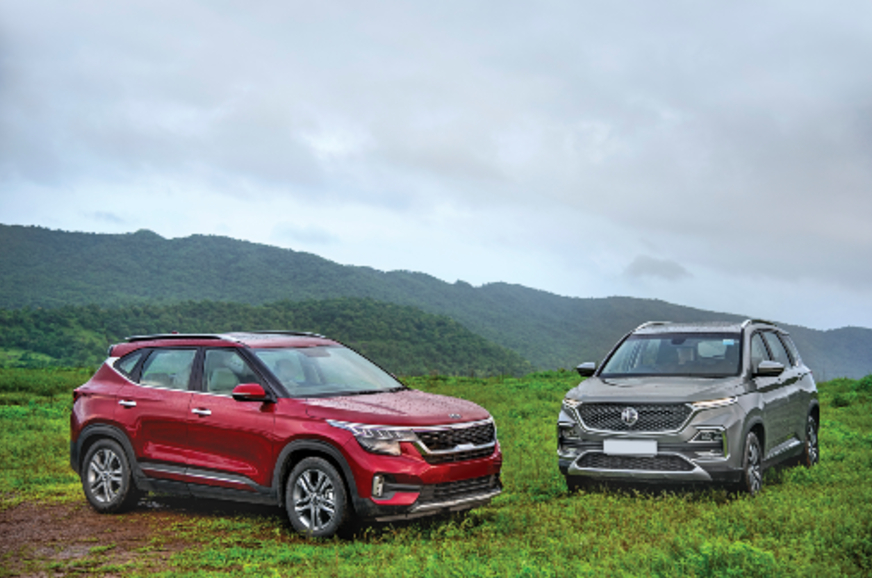
The two new entrants to the Indian market, MG and Kia, are already off to a flying start. While the automotive market is floundering, both the brands’ SUVs have so far managed to gather strong booking numbers, with deliveries already in full swing. They are also aggressively ramping up production at their respective plants to meet the demand.
MG Motor India has so far dispatched 6,134 units of the Hector since its launch back in June, while Kia has managed to roll out 6,236 units of the Seltos SUV since its August launch. The Hector, which is built at the brand’s Halol plant in Gujarat, currently has an order backlog of around 40,000 units. The company had paused bookings for the SUV on July 18, 2019, but reopened the order book in September, where the company says it managed to secure an additional 8,000 orders despite a price hike of around Rs 30,000-40,000 (depending on variant). On the other hand, the Kia Seltos, which is being manufactured at the brand’s facility in Anantapur in Andhra Pradesh, has an order backlog of 50,000 units.
The MG Hector is offered with multiple engine-gearbox options, including a 1.5-litre turbo-petrol, a 1.5-litre turbo-petrol with 48V mild-hybrid, and a 2.0-litre diesel. A major chunk of bookings have been for the 1.5-litre petrol-hybrid variant. Kia’s Seltos is available with either a 1.5-litre petrol or a diesel, and a 1.4-litre turbo-petrol engine. The company has announced that nearly half its orders are for the 1.5-litre diesel engine model, while about 30 percent account for the 1.4-litre turbo-petrol, and the remainder for the 1.5-litre petrol.
from Autocar India - Cars https://ift.tt/330k9LA
Samsung's Next Foldable Phone May Look Like This
from NDTV Gadgets - Latest https://ift.tt/34enJlG
Boeing CEO Accused of Telling 'Half-Truths' in 737 Max Hearing
from NDTV Gadgets - Latest https://ift.tt/2BSTy7l
Game of Thrones Prequel Series, With Naomi Watts, Is Dead at HBO: Reports
from NDTV Gadgets - Latest https://ift.tt/34ggWaS
WhatsApp Sues Israel's NSO for Allegedly Helping Spies Hack Phones
from NDTV Gadgets - Latest https://ift.tt/347VDbA
Huawei Mate 30 and Mate 30 Pro may officially land in Europe in mid-November

Huawei's grand unveiling event for the Mate 30 and Mate 30 Pro took place in Europe, but so far neither device has officially been released in the continent. That might change soon, if a new rumor that supposedly originates at "well-informed sources based in China" is to be believed. These unnamed people claim that the company is gearing up to release the phones in Europe in mid-November. In fact, the launch date could be November 15. That said, it's still unclear exactly which countries are going to get the new flagship duo. Huawei Mate 30 Pro However, the same sources speculate...
from GSMArena.com - Latest articles https://ift.tt/32YZJmi
Shahan Ali Mohsin Impresses All In 2019 Rotax Grand Final Seniors In Italy
from NDTV Auto - Latest https://ift.tt/2JNdQDR
Google Pixel 4 XL review
The Google Pixel 4 duo was not Google's best-kept secret. We saw pictures of the phone weeks before the event, and we even learned about Face unlock while Google teased the Motion Sense features ahead of its event. The Google Pixel 4 XL represents everything that Google has learned in the first four iterations of the Google Pixel, including a mid-cycle and mid-range Pixel 3a which was very well received.
from GSMArena.com - Latest articles https://ift.tt/31Z5fnD
LG G8X and its Dual Screen arrive at Sprint on November 8

LG has already announced that its G8X ThinQ, along with its unique Dual Screen accessory, will be hitting the United States starting on November 1. Carriers were going to then confirm their specific launch details, and Sprint is the first one to come forward with just that. The LG G8X and the Dual Screen will be available at Sprint on November 8. Pre-orders start on November 1. If you switch to the carrier, you can have the G8X for just $15 per month with Sprint Flex lease. Current customers can take advantage of this offer if they are upgrade eligible or add a line of service to their...
from GSMArena.com - Latest articles https://ift.tt/32YAel7
Review: Volkswagen Polo RX review, test drive
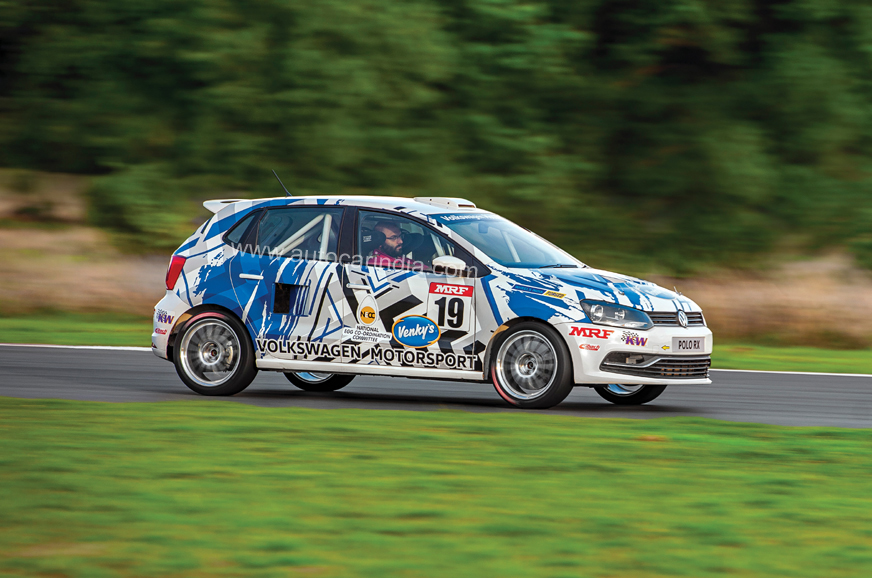
To the uninitiated, this might look like a tarted-up Polo with some vinyl graphics and a set of cool wheels. Some might even notice the roll cage and racing seats. But look closely and you soon realise that the rear is not normal.
The mid-engined Polo RX is what Volkswagen Motorsport calls its ‘winter project’. A group of young engineers essentially took a bone-stock base model Polo and cut a huge hole where the rear seats, spare wheel well and fuel tank lay. They then got themselves the front-end internal monocoque bits of yet another Polo, flipped it by 180 degree and welded it in. Suspension points, engine mounting points, suspension arms and both the strut towers, and even the steering rack were plonked in. So in place of rear seats, you now get Volkswagen’s banging four-cylinder, 1.8-litre, turbocharged engine, codenamed the EA888 – the same Audi-engineered one you get in a Polo GT.
But that was just the first step. They then had to go about strengthening the whole body so it could handle the torque, this calling for a highly complex roll cage. Other bits that were shifted around included the intercooler for the turbo mounted just behind the new firewall which is constructed between the cabin and new rear engine bay. The fuel tank (fuel cell), of course, moved to the front, while the cooling system still stayed up front.
The gearbox is a racing unit made by a company called 3MO, and it’s the same sequential 6-speed one used in the Ameo Cup race cars. The front brakes aren’t stock either. In fact, while the rear brakes on this car are in essence the front brakes of a Polo GTI, the front brakes are from a Golf R
and they are, well, HUGE!
So let’s talk numbers. The engine makes about 240hp and 345Nm of torque. The turbo makes about 17.5 PSI of boost and the car weighs just 1,100kg, giving it a power-to-weight ratio of about 218 horsepower per tonne. And as with the race cars, this Polo RX too is controlled by a MoTec standalone ECU.
To start the Polo RX, you don’t simply turn a key; you follow a long-winded sequence. First you press the main power button that turns on the high-pressure fuel pumps, then the ignition button and finally the start button, and it comes to life with an angry growl and hiss. Engage the clutch (which you need only to get moving in first gear, to bring the car to a halt or to reverse), pull on that right-hand paddle, and the shifter actuators engage the gearbox with a solid “thunk”.
Out on the Madras Motor Race Track (MMRT), you get absurd levels of acceleration and grip from the MRF ZLO slick tyres. The wheels are about 30 percent lighter and over 50 percent stronger than the Team Dynamics wheels Volkswagen Motorsport has been using so far.
Get to a corner and this Polo WILL demand your respect. While the Ameo Cup race car can be chucked into a corner slightly shabbily, the Polo RX’s rear-biased 45:55 weight distribution and short wheelbase mean you need to be neat and deliberate with the rear end. It must be in absolute sync with what that front end is doing. If you grab it by the scruff of its neck and hurl it around, the car will snap into oversteer – yes, even with those massive slicks in the rear.
That said, if you are neat and tidy, with the extra weight at the back and the drive going out the rear wheels, you can put a lot of power down. And then there’s the fact that the front wheels are free to only steer – what you get is an incredibly pinpoint precise feel. I don’t think I can remember another car I have driven in the recent past that feels so accurate on the turn-in, apex and on the way out of the corner. In fact, the Polo RX is probably the perfect vehicle to actually teach budding race-car drivers how to be precise and smooth with a mid-engine, rear-drive car on a racetrack. And the front end does feel a little light. The moment you are done with a corner and have all four wheels pointing straight, you can floor the throttle and unleash all the power.
Go through the gears and the MoTec instrument cluster shows a quickly rising number, accompanied by the sound of a muffler-less exhaust and a loud electric turbo wastegate. It is hot, loud, uncomfortable (obviously) and all of these things make it the perfect toy for a grown-up racer or budding aspirant. It makes you feel alive, even slightly scared of it, especially if you don’t have god-like reflexes or professional race-car driver skills.
If a one-word answer could sum up my driving experience over the 25-30 odd laps that I did manage at the MMRT, it would be ‘brutal’.
Fun fact
If you approach Volkswagen Motorsport and ask them to build you a Polo RX, they will. And not only will they build you one in this spec, with 240hp (for track use only, of course), but also with figures upward of 300hp if you ask nicely. In fact, they can even make you an aero package with a rear wing, which will give you some real usable downforce, and a front splitter that will help turn the car into a corner even quicker. And while there is no real price tag on it just yet, if you do have a ton of money stashed away, live somewhere near a racetrack and want to feel alive every time you press the start button, this is probably a great tool for the job. How I wish they’d make a street-legal one too!
| Volkswagen Polo RX Specifications | |
| Fuel type | Petrol |
| Engine | 1.8-litre, turbocharged 4-cylinder |
| Engine installation | Rear mid-engine |
| Power | 240hp |
| Torque | 345Nm |
| Gearbox | 6-speed sequential gearbox |
| Drive layout | Rear-wheel drive |
Click here for Volkswagen Polo prices, reviews, images, videos and more
from Autocar India - Cars https://ift.tt/34dU0sS